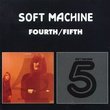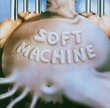| All Artists: Soft Machine Title: Seven Members Wishing: 3 Total Copies: 0 Label: Sony Bmg Europe Original Release Date: 1/1/2007 Re-Release Date: 3/5/2007 Album Type: Import, Original recording remastered Genres: Jazz, Special Interest, Pop, Rock, Classic Rock Styles: Experimental Music, Progressive, Progressive Rock, Psychedelic Rock Number of Discs: 1 SwapaCD Credits: 1 UPC: 828768729229 |
Search - Soft Machine :: Seven
 | Soft Machine Seven Genres: Jazz, Special Interest, Pop, Rock, Classic Rock
Japanese remastered reissue packaged in a limited edition miniature LP sleeve. CBS/Sony. 2004. |
Larger Image |
CD DetailsSynopsis
Album Description Japanese remastered reissue packaged in a limited edition miniature LP sleeve. CBS/Sony. 2004. Similar CDs
|
CD ReviewsAwesome remastered edition of the prog-rock classic!!! It's Jason Pumphrey | Falls Church, Virginia United States | 03/12/2007 (5 out of 5 stars) "What a great classic album from 1973!!! Soft Machine's "Seven" album get's the 24-bit remastering that it deserves!!!! The sound is full and detailed!!! Great booklet with photos and liner notes too!!! "It's Seventh Heaven"!!! Top notch musicianship from Mike Ratledge,John Marshall,Karl Jenkins and Roy Babbington!!! An excellent spin!!! Two thumbs up!!! Five stars!!! A+" (Now wet's be ve-wy, ve-wy qwiet) yinyangofbang | Phoenix, AZ | 04/26/2006 (5 out of 5 stars) "Writing this makes me feel as though I'm Elmer Fudd, sneaking up on Bugs so that he doesn't hear me, but here goes anyway: I like this CD. I mean, I REALLY like this CD. In fact, I've liked it since its original release, which was my introduction to the band. Oh sure, I've since gone back and listened to their earlier material - you know, the stuff that's venerated by so many that there are probably several world religions based on it by now. And sure, the earlier stuff is indeed most excellent. But the criticism of this band for its evolution is as misplaced as was the criticism of Dylan when he similarly evolved some years earlier. Dylan clearly knew what he was doing, and he exposed his critics as tired old folkies. In retrospect, those that criticize this release are tired old hippies. Get over it folks - this is good stuff. In fact, I'll go so far as to say that it's an important CD. Not as important as Bitches Brew, but similar. These guys weren't the technicians that Miles' sidemen were, but that's really the point, isn't it? Miles used the world's best musicians to show that jazz and rock could combine to make an eminently listenable brew. This contemporaneous release showed that similar results could be achieved (albeit on a smaller scale) by musicians who were mere mortals. As such, it has become a touchstone for many who have followed (Medeski Martin & Wood, etc.). So you see, it's not so blasphemous after all. Go ahead, give it a spin. You won't turn into a pillar of salt, I promise." A well oiled Machine Octoworm | 12/22/2005 (5 out of 5 stars) "This album has received some unfair criticism as being either a sellout or evidence of musical decline. My own opinion is that this is the record Soft Machine had been building up to. There's a reason why it sold so well; it's simply their best work.
True, Seven is not as complex and chaotic as much of Soft Machine's earlier work, but the seeeming simplicity can be deceptive. It reveals a level of maturity with the band more focused on solid songcraft and entrenched grooves. On this album they sound like they have nothing left to prove and can instead enjoy themselves." |

 Track Listings (12) - Disc #1
Track Listings (12) - Disc #1
